Jin Han Lee
Goal-Driven Autonomous Mapping Through Deep Reinforcement Learning and Planning-Based Navigation
Mar 12, 2021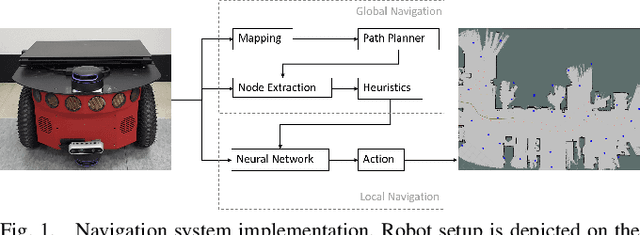
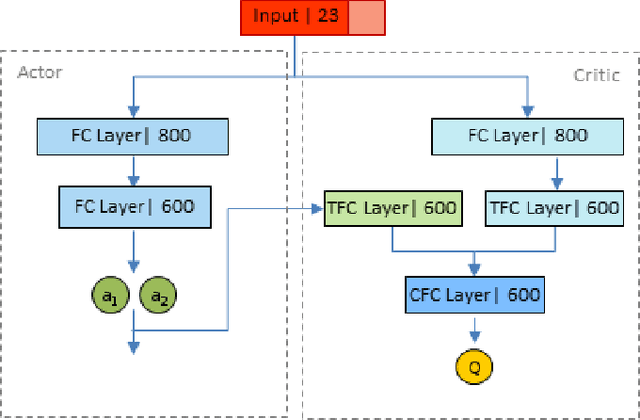
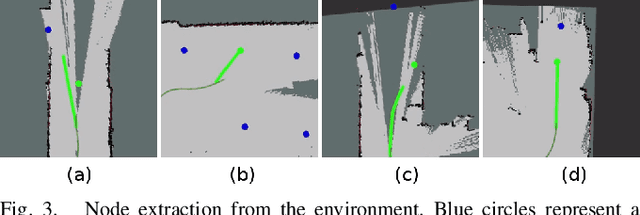
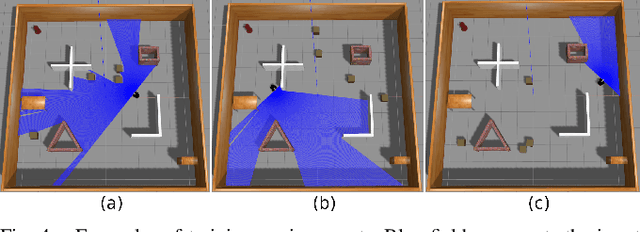
Abstract:In this paper, we present a goal-driven autonomous mapping and exploration system that combines reactive and planned robot navigation. First, a navigation policy is learned through a deep reinforcement learning (DRL) framework in a simulated environment. This policy guides an autonomous agent towards a goal while avoiding obstacles. We develop a navigation system where this learned policy is integrated into a motion planning stack as the local navigation layer to move the robot towards the intermediate goals. A global path planner is used to mitigate the local optimum problem and guide the robot towards the global goal. Possible intermediate goal locations are extracted from the environment and used as local goals according to the navigation system heuristics. The fully autonomous navigation is performed without any prior knowledge while mapping is performed as the robot moves through the environment. Experiments show the capability of the system navigating in previously unknown surroundings and arriving at the designated goal.
From Big to Small: Multi-Scale Local Planar Guidance for Monocular Depth Estimation
Aug 26, 2019
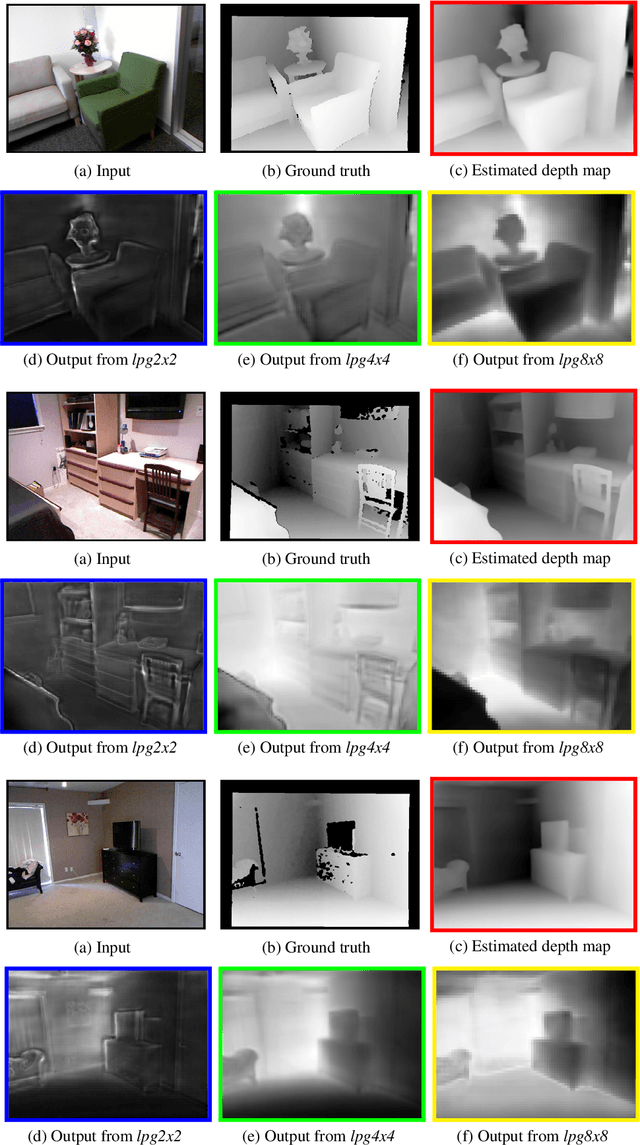


Abstract:Estimating accurate depth from a single image is challenging, because it is an ill-posed problem as infinitely many 3D scenes can be projected to the same 2D scene. However, recent works based on deep convolutional neural networks show great progress achieving plausible results. The networks are generally composed of two parts: an encoder for dense feature extraction and a decoder for predicting the desired depth. In the encoder-decoder schemes, repeated strided convolution and spatial pooling layers lower the spatial resolution of transitional outputs, and several techniques such as skip connections or multi-layer deconvolutional networks are adopted to effectively recover back to the original resolution. In this paper, for a more effective guidance of densely encoded features to desired depth prediction, we propose a network architecture that utilizes novel local planar guidance layers located at multiple stages in decoding phase. We show that the proposed method outperforms the state-of-the-art works with significant margin evaluating on challenging benchmarks. We also provide results from an ablation study to validate the effectiveness of the proposed core factors.
 Add to Chrome
Add to Chrome Add to Firefox
Add to Firefox Add to Edge
Add to Edge